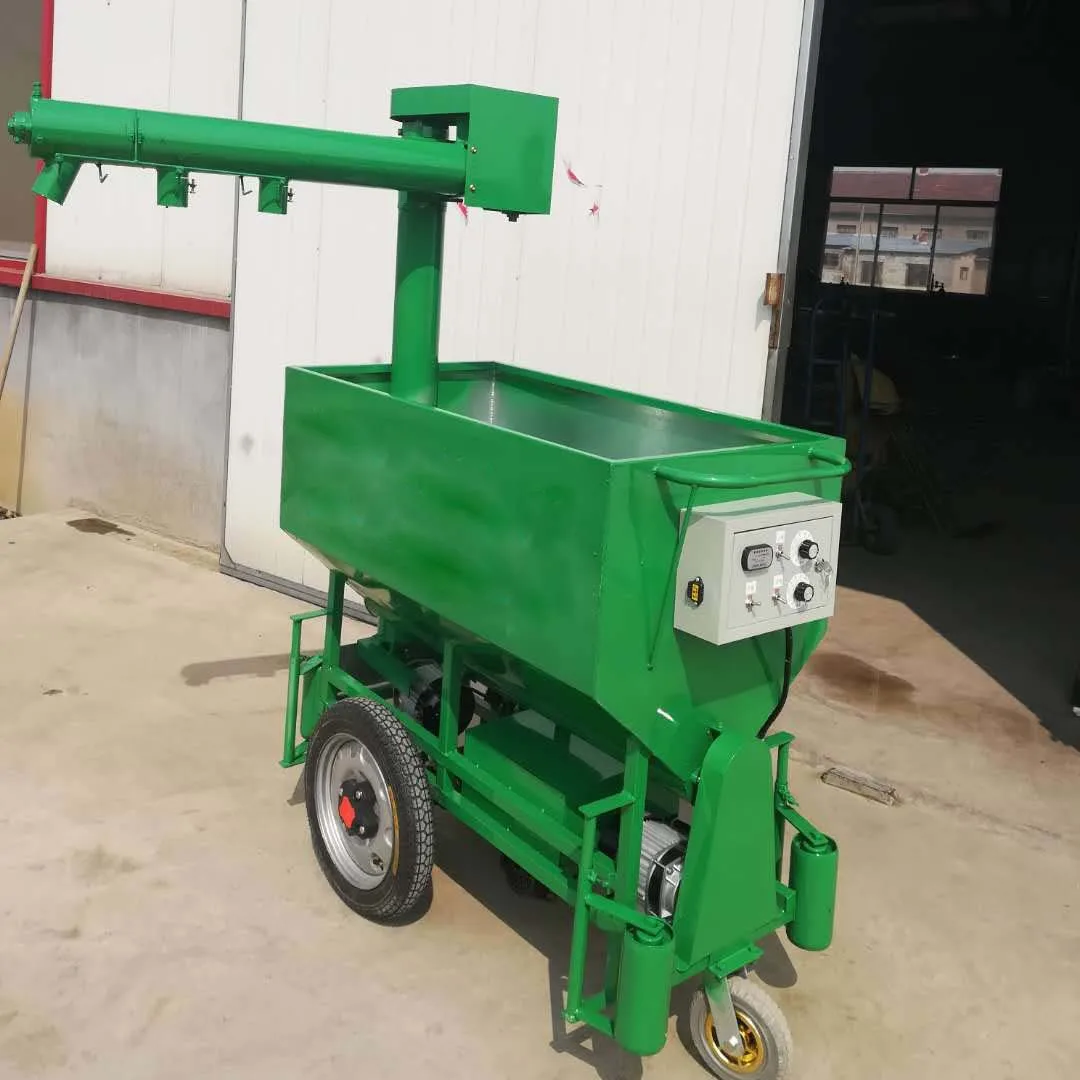Exploring the Benefits of Using a Feed Mixer for Livestock Nutrition
Oct . 31, 2024 18:21 Back to list
Exploring the Benefits of Using a Feed Mixer for Livestock Nutrition
The Importance of Feed Mixers in Livestock Farming
In the modern landscape of livestock farming, ensuring optimal animal nutrition is paramount for the productivity and health of farm animals. One of the critical tools that assist farmers in achieving this goal is the feed mixer. This essential piece of equipment plays a significant role in the formulation and preparation of animal feed, providing a variety of benefits that contribute to both the efficiency of operations and the well-being of livestock.
At its core, a feed mixer is designed to combine various feed ingredients into a homogeneous mixture. By blending different components such as grains, proteins, vitamins, and minerals, farmers can create a balanced diet tailored to their animals' specific nutritional needs. This is crucial because livestock, whether they are cattle, pigs, chickens, or sheep, have different dietary requirements that can vary based on age, weight, and production goals (e.g., fattening, milk production, or egg laying).
One of the primary advantages of using a feed mixer is the ability to achieve consistent feed quality
. Inconsistent feed can lead to nutritional deficiencies, which can affect animal growth, reproduction, and overall health. By using a feed mixer, farmers can ensure that each batch of feed is uniform, reducing the likelihood of variation that could harm livestock. Consistency in feed also aids in maintaining stable growth rates and improving feed conversion ratios, which are essential metrics in livestock production.feed mixer

Moreover, feed mixers enhance efficiency in feed preparation. Traditionally, farmers might have mixed feed manually or used less effective methods that were labor-intensive and time-consuming. The introduction of advanced feed mixers has revolutionized this process. Modern machines can handle large volumes, mixing ingredients quickly and thoroughly while reducing labor costs. This allows farmers to allocate their time and resources more effectively, focusing on other essential aspects of farm management.
The use of feed mixers also supports precision feeding — a strategy aimed at optimizing nutrient delivery to livestock. With the ability to create custom feed blends, farmers can address specific animal needs and conditions more effectively. For example, a farmer may mix a higher protein feed for growing pigs while providing a different blend for sows that are pregnant or lactating. Such targeted nutrition not only improves animal health and productivity but also contributes to sustainability in agriculture by minimizing waste and improving feed efficiency.
Furthermore, feed mixers can help reduce feed costs. By allowing farmers to mix their own feed, they can take advantage of bulk buying for raw ingredients and incorporate less expensive or locally sourced components. This economic benefit is vital in maintaining profitability in a competitive market. Additionally, with better nutrition, animals tend to grow faster and produce more, further enhancing the financial returns for farmers.
In conclusion, feed mixers are an indispensable tool in modern livestock farming. They provide consistent, efficient, and tailored feed solutions that promote the health and productivity of animals. As the agricultural sector continues to evolve towards more sustainable and efficient practices, the importance of innovations such as feed mixers will only grow. For farmers committed to optimizing their operations and ensuring the well-being of their livestock, investing in a quality feed mixer is not just an option; it's a necessity.
-
Hot Sale 24 & 18 Door Rabbit Cages - Premium Breeding Solutions
NewsJul.25,2025
-
Automatic Feeding Line System Pan Feeder Nipple Drinker - Anping County Yize Metal Products Co., Ltd.
NewsJul.21,2025
-
Automatic Feeding Line System Pan Feeder Nipple Drinker - Anping County Yize Metal Products Co., Ltd.
NewsJul.21,2025
-
Automatic Feeding Line System - Anping Yize | Precision & Nipple
NewsJul.21,2025
-
Automatic Feeding Line System - Anping Yize | Precision & Nipple
NewsJul.21,2025
-
Automatic Feeding Line System-Anping County Yize Metal Products Co., Ltd.|Efficient Feed Distribution&Customized Animal Farming Solutions
NewsJul.21,2025






